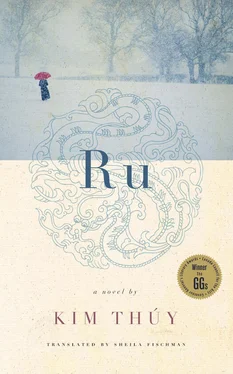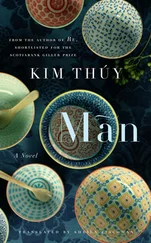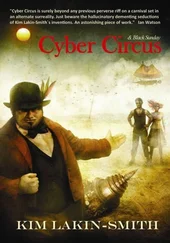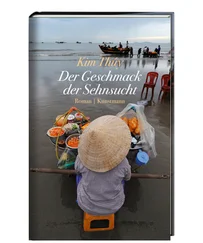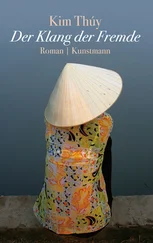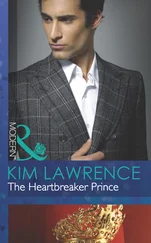Madame Girard had the same burned skin even though she didn’t work in the strawberry fields or the plantations. Madame Girard had hired my mother to clean her house, not knowing that my mother had never held a broom in her hands before her first day on the job. Madame Girard was a platinum blonde like Marilyn Monroe, with blue, blue eyes, and Monsieur Girard, a tall, brown-haired man, was the proud owner of a sparkling antique car. They often invited us to their white house with its perfectly mown lawn and flowers lining the entrance and a carpet in every room. They were the personification of our American dream.
Their daughter invited me to her roller skating competitions. She passed on to me her dresses that had become too small, one of them a blue cotton sundress with tiny white flowers and two straps that tied on the shoulder. I wore it during the summer, but also in winter over a white turtleneck. During our first winters, we didn’t know that every garment had its season, that we mustn’t simply wear all the clothes we owned. When we were cold, without discriminating, without knowing the different categories, we would put one garment over another, layer by layer, like the homeless.
My father tracked down Monsieur Girard thirty years later. He no longer lived in the same house, his wife had left him and his daughter was on sabbatical, in search of a purpose, a life. When my father brought me this news, I almost felt guilty. I wondered if we hadn’t unintentionally stolen Monsieur Girard’s American dream from having wanted it too badly.
I also got back together with my first friend, Johanne, thirty years later. She didn’t recognize me, neither on the phone nor in person, because she had known me as deaf and mute. We’d never spoken. She didn’t really remember that she’d wanted to become a surgeon, even though I had always told my high school guidance counsellors that I was interested in surgery, like Johanne.
The guidance counsellors would call me into their offices every year because there was a glaring gap between my grades and the results of my IQ tests, which bordered on deficient. How could I not find the intruder in the series “syringe, scalpel, skull, drill” when I could recite by heart a passage about Jacques Cartier? I only mastered what had been specifically taught to me, passed on to me, offered to me. Which is why I understood the word surgeon but not darling or tanning salon or horseback riding . I could sing the national anthem but not “The Chicken Dance” or the birthday song. I accumulated knowledge at random, like my son Henri, who can pronounce poire but not maman , because the course of our learning was atypical, full of detours and snags, with no gradation, no logic. I shaped my dreams in the same way, through meetings, friends, other people.
For many immigrants, the American dream has come true. Some thirty years ago, in Washington, Quebec City, Boston, Rimouski or Toronto, we would pass through whole neighbourhoods strewn with rose gardens, hundred-year-old trees, stone houses, but the address we were looking for never appeared on one of those doors. Nowadays, my aunt Six and her husband, Step-uncle Six, live in one of those houses. They travel first class and have to stick a sign on the back of their seat so the hostesses will stop offering them chocolates and champagne. Thirty years ago, in our Malaysian refugee camp, the same Step-uncle Six crawled more slowly than his eight-month-old daughter because he was suffering from malnutrition. And the same Aunt Six used the one needle she had to sew clothes so she could buy milk for her daughter. Thirty years ago, we lived in the dark with them, with no electricity, no running water, no privacy. Today, we complain that their house is too big and our extended family too small to experience the same intensity of the festivities — which lasted until dawn — when we used to get together at my parents’ place during our first years in North America.
There were twenty-five of us, sometimes thirty, arriving in Montreal from Fanwood, Montpelier, Springfield, Guelph, coming together in a small, three-bedroom apartment for the entire Christmas holiday. Anyone who wanted to sleep alone had to move into the bathtub. Inevitably, conversations, laughter and quarrels went on all night. Every gift we offered was a genuine gift, because it represented a sacrifice and it answered a need, a desire or a dream. We were well acquainted with the dreams of our nearest and dearest: those with whom we were packed in tightly for nights at a time. Back then, we all had the same dreams. For a long time, we were obliged to have the same one, the American dream.
When I turned fifteen, my aunt Six, who at the time was working in a chicken processing plant, gave me a square aluminum tin of tea that had images of Chinese spirits, cherry trees and clouds in red, gold and black. Aunt Six had written on each of ten pieces of paper, folded in two and placed in the tea, the name of a profession, an occupation, a dream that she had for me: journalist, cabinetmaker, diplomat, lawyer, fashion designer, flight attendant, writer, humanitarian worker, director, politician. It was thanks to that gift that I learned there were other professions than medicine, that I was allowed to dream my own dreams.
Once it’s achieved, though, the American dream never leaves us, like a graft or an excrescence. The first time I carried a briefcase, the first time I went to a restaurant school for young adults in Hanoi, wearing heels and a straight skirt, the waiter for my table didn’t understand why I was speaking Vietnamese with him. At first I thought that he couldn’t understand my southern accent. At the end of the meal, though, he explained ingenuously that I was too fat to be Vietnamese.
I translated that remark to my employers, who laugh about it to this day. I understood later that he was talking not about my forty-five kilos but about the American dream that had made me more substantial, heavier, weightier. That American dream had given confidence to my voice, determination to my actions, precision to my desires, speed to my gait and strength to my gaze. That American dream made me believe I could have everything, that I could go around in a chauffeur-driven car while estimating the weight of the squash being carried on a rusty bicycle by a woman with eyes blurred by sweat; that I could dance to the same rhythm as the girls who swayed their hips at the bar to dazzle men whose thick billfolds were swollen with American dollars; that I could live in the grand villa of an expatriate and accompany barefoot children to their school that sat right on the sidewalk, where two streets intersected.
But the young waiter reminded me that I couldn’t have everything, that I no longer had the right to declare I was Vietnamese because I no longer had their fragility, their uncertainty, their fears. And he was right to remind me.
Around that time, my employer, who was based in Quebec, clipped an article from a Montreal paper reiterating that the “Québécois nation” was Caucasian, that my slanting eyes automatically placed me in a separate category, even though Quebec had given me my American dream, even though it had cradled me for thirty years. Whom to like, then? No one or everyone? I chose to like the gentleman from Saint-Félicien who asked me in English to grant him a dance. “Follow the guy,” he told me. I also like the rickshaw driver in Da Nang who asked me how much I was paid as an escort for my “white” husband. And I often think about the woman who sold cakes of tofu for five cents each, sitting on the ground in a hidden corner of the market in Hanoi, who told her neighbours that I was from Japan, that I was making good progress with my Vietnamese.
She was right. I had to relearn my mother tongue, which I’d given up too soon. In any case, I hadn’t really mastered it completely because the country was divided in two when I was born. I come from the South, so I had never heard people from the North until I went back to Vietnam. Similarly, people in the North had never heard people from the South before reunification. Like Canada, Vietnam had its own two solitudes. The language of North Vietnam had developed in accordance with its political, social and economic situation at the time, with words to describe how to shoot down an airplane with a machine gun set up on a roof, how to use monosodium glutamate to make blood clot more quickly, how to spot the shelters when the sirens go off. Meanwhile, the language of the South had created words to express the sensation of Coca-Cola bubbles on the tongue, terms for naming spies, rebels, Communist sympathizers on the streets of the South, names to designate the children born from wild nights with GIs.
Читать дальше
